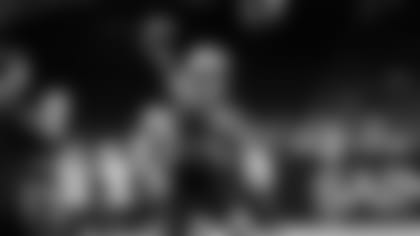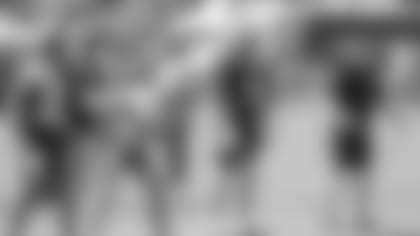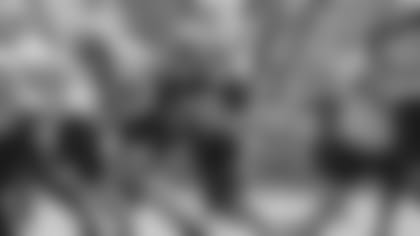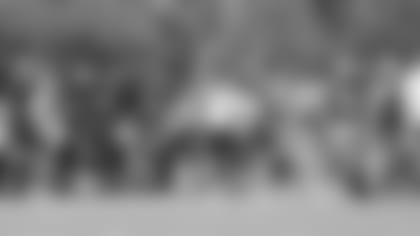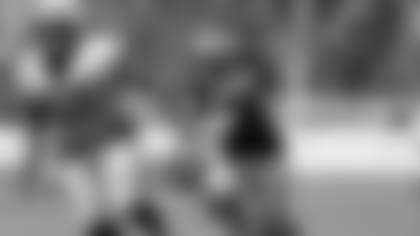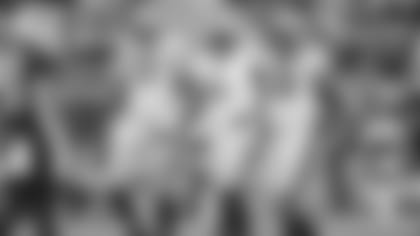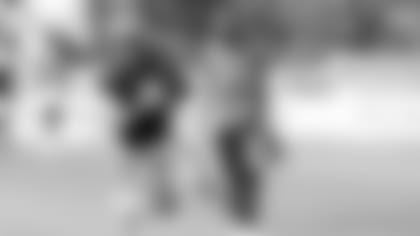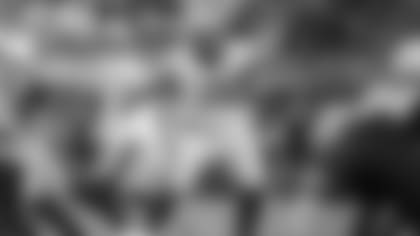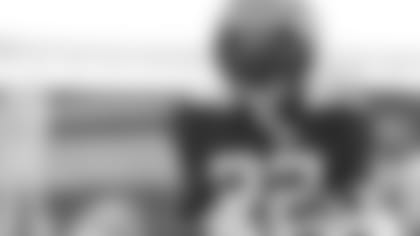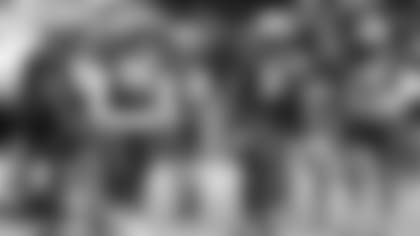New Orleans Saints Head Coach Sean Payton
2017 Training Camp Presented By Verizon
Sunday, July 30, 2017
You guys practiced for three hours today. What do you learn from a marathon session like that?
"I told them at one point that we're not just going to go through (the motions) and run plays. We repeated a team drill towards the end. There were some things that I didn't like. I think the worst thing we can do is sit and tolerate something that we feel's not acceptable. It's really no different than parenting. It takes energy. You have to change behaviors. I thought part of this practice was missing some of the intensity that I would like to see. We're going to get it. We will find it, but it required us to go a little bit longer."
How concerned are you with some of the tackling today that seemed to lead to a few fights?
"It was not a tackling period, so it is hard to evaluate. We are going to have some tackling periods. It is something that becomes a little bit more revealing when you go live. Then you truly see who had the leverage they needed. (The small fights were) about a number of other things."
You were not against the little fights that happened?
"I did not see those as significant. They were the least of my concerns."
What caused the inconsistencies with the snaps?
"Jack (Allen) has had trouble with it. I told him that, obviously, if you are a center you have to be able to snap it. He has to get that fixed."
Why did Adrian Peterson and Zach Strief sit out today?
"We have a list or a kind of schedule. Manti Te'o (sat) the same way. Throughout the week, we will take two or three guys and hold them back. They will go through individual drills, stretch, warm-up, and walkthrough. It is just a way to make sure that we are being smart with those guys with regard to their lower bodies."
What are you doing to recover from a day like this? Do you have special equipment?
"The tent (next to the field) has inflatables. It has cold tubs. We have yoga. They have about eight stations they have to go to throughout the day. They're smart enough to do that. They understand (what is necessary). We are a lot further along (in our knowledge) today than we were 10 or 15 years ago when we just put ice on everything. There is a lot that is done with regard to recovery. You are on really a one-a-day schedule, too."
Are those the same techniques you used in West Virginia?
"It is the same stuff. It is just a different tent now. A lot of the recovery stations were set up inside in West Virginia. If we have a space issue, we will just build a kind of portable station."
How has Brandon Coleman looked to you so far?
"I thought he has looked good. I feel like in each practice, we have seen a couple of things from him. I thought he ran a really good slant route today. He has gotten behind the defense. I thought he has had a really good camp so far. Here we are, three or four days in, but he looks to be running well. He has made a play or two each day. I would say it has been pretty positive."
You mentioned the other day that cornerback was a position written in pencil and not pen. Have the players responded to that assessment?
"I think so. Once we get into some of the tackling drills, we'll still have a lot of time to evaluate. That is not the only position like that, but that is one of them."
I am sure we tend to notice flash plays more than you, as you can dissect a whole practice on film, but is it wrong to think that Alex Anzalone has really stood out?
"It is early. He has had some moments where he has been really good, and he's had a couple of knucklehead things take place as well. He's someone that's pretty instinctive. We felt that we could see that on his college film. We will continue to get him up to speed, but he is getting there."
Who has stood out to you now that you are in pads?
"Brandon Coleman was one guy who stood out. You're really asking about one practice because I haven't seen today's film. I think the runners have done well; Alvin Kamara's done well as a young player. We've seen some good things from Arthur Maulet. I think the two inside (defensive) tackles yesterday were pretty good, Sheldon Rankins and David Onyemata. I thought Zach Strief (was good) yesterday. Those are just a few observations from yesterday's practice."
Looking at the one-on-one pass protection drill, can you give a player, offensively and defensively, who succeeded?
"I did not see today's yet. Typically, there is a three-count you are blocking for. As a coach, you hope to see some balance. You hope to see the defense win some, and you obviously hope to see your guys improve. I think the key is in the competitive nature of each of these drills. We have to, as coaches, create that. If not, then you will go back and forth without the effort you are looking for, and you are no further along to making your future decision than you were at the beginning. We are going to have some live team periods soon. I am sure that as soon as tomorrow we will have one. It is up to us as coaches to create those environments and to put these players in a position where it is not just important, but it is vital."
How would you say your policy on rest days has evolved over the years, and what were the influential factors?
"The most influential factor was the collective bargaining agreement. That established a mandatory rest day once a week. I think it makes sense. In other words, when you did not have that mandatory day, there would be a day that you created where they would be off. You'd sense that you were getting to a point where they needed it. Finding that day is pretty easy now. We are a lot further along—I know I am—with regard to limiting time on the field for veteran players and players that have had injuries. You might take Manti Te'o out due to an Achilles injury. You might take out Adrian Peterson due to a knee injury or Mark Ingram II due to a knee injury. We are a little bit further along with regard to looking at their workloads and managing them without the risk of reinjury, or at least trying to reduce it if you look at the numbers."
So if you are young and healthy, you will not get many days off?
"You are going to have your one day a week, which is four more than they used to have. Some of the younger players may require time off based on their injury history."
Rob Ninkovich announced his retirement today. Do you have any thoughts?
"I heard that. He has had a fabulous career. When you look at the players in his class from the 2006 NFL Draft, all of them are close. (Zach) Strief, (Marques) Colston, (Rob) Ninkovich, (Reggie) Bush, (Roman) Harper, and Jahri Evans—those guys all played 10 or more years. For him to have the success that he had, not only as a player but also as a teammate and someone that had a chance to win Super Bowls, I am excited for him. He is a wonderful guy and a really good football player. I know he was a great teammate as well."
When you have a guy like Marshall Faulk here, do you ever ask a guy like Alvin Kamara to pick his brain?
"Periodically. We're at the point where I do not know if they can remember who Marshall Faulk is. That's scary, right? Never mind the fact that I look back to Walter Payton, and I know they can't remember him. Periodically, guys will have an interest. I think it's important when guys have an interest in the history of the game. I like that. That generally tells us something about them. At the Combine, we generally ask that question. 'Who do you study? Who is your favorite player?' If they do not have an answer for that—once in a while, you get the response, 'I do not really watch pro football'—that is a red alert for me. There are some traits that Alvin Kamara has that remind me of Marshall Faulk, with regard to his intelligence and his ability to run routes. (Faulk) was as good as there was in that element of the game and probably one of the top three or four backs of all time. He was one of the smartest players I ever coached."
Where did you learn that about Kamara?
"We had a private workout with him. A group of us went. We worked out all 11 guys (draft-eligible players at Tennessee), and then we spent time with each of these guys individually. It was evident even in the first half hour of how smart Kamara was. He was in with the quarterbacks. He understood schemes. He understood route reads and concepts, even on the field. That was impressive. It would be something that would be difficult to learn if you were just looking at a test."
Do you remember how Willie Snead first caught your eye?
"We were practicing with New England at the Greenbrier. He was working as either a gunner or a jammer, one of the two. That is hard work. If you are getting doubled, and you are out there—you guys have seen it—that is probably one of the hardest things to do on a football field. He got tangled up and was taking every other rep. We had four guys in line, but Willie was competing. He was out there fighting with these guys. You just could not help but notice his effort. It was very impressive. It was Snead working as either a jammer or as a gunner."
Have you seen that now as a wide receiver?
"There was just a grit element. That is what got him in the building, if you will. There was a toughness that you could see, willingness to block, and determination. He is smart. That would be the first thing that I can recall. I was looking at him and saying, 'Wow.' This was around our second week of training camp if I am not mistaken."


